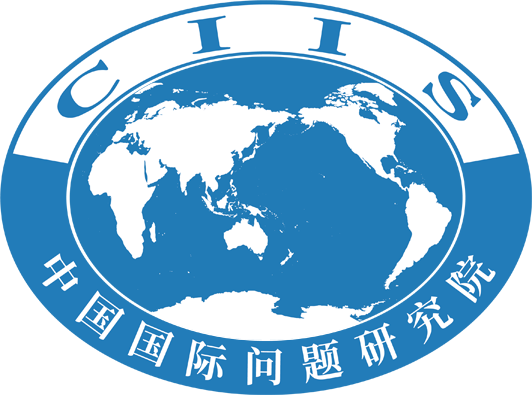Remarks at the 2019 China-U.S. Young Leaders Dialogue
Amb. Qi Zhenhong
President, China Institute of International Studies
13 May 2019, Beijing
Distinguished scholars and guests:
Good morning!
First of all, let me extend the warmest welcome on behalf of China Institute of International Studies to everybody for attending the 2019 China-U.S. Young Leaders Dialogue, which under the joint efforts of our two countries, has become a signature event of my Institute. Following the workshop, our American scholars will go on a series of visits in Beijing to China’s Ministry of Foreign Affairs, the National Development and Reform Commission, China Center for International Economic Exchanges, China Foreign Affairs University, and Pangoal Institute, which I believe will help American friends understand China further.
The theme of the Dialogue is “Retrospect and Prospect: Commemorating the 40thAnniversary of the Establishment of China-U.S. Diplomatic Relations”. We look back at history and reflect on the past in order to do well at present and create our future. As an ancient Chinese proverb says, “One is no longer perplexed at forty.” However, in recent years, due to moves taken by the U.S., China and U.S. are witnessing heightened competition, frictions and conflicts in multiple areas such as politics, economy, security, diplomacy, technology and culture, and are also experiencing increasing alienation. The major reasons are as follows:
Firstly, the U.S. perception of China has changed significantly. Some of our U.S. friends perceive China as a “revisionist” of the current international order and a major “strategic competitor” of the U.S. and China’s objective is to replace the U.S., which calls for a “whole-of-government” and “whole-of-society” competition with China. And the national policies resulting from this perception are leading the U.S. to a path of confrontation with China. Despite of great achievements since the Reform and Opening-up, China remains a developing country and still has a long way to go before completing all-round modernization. China’s cultural tradition, national political characteristics and the tide of the times determine that China must take a development path unlike that of traditional major powers. China will neither become the U.S., nor challenge the U.S., nor seek to replace the U.S. Confronted with the new circumstances, China is trying to keep the China-U.S. relations on the correct path of coordination, cooperation and stability.
Secondly, bilateral frictions in economy and trade are escalating. In terms of the global industrial chain, China and the U.S. are in complementary positions. Though in frictions, bilateral goods trade exceeded USD630 billion, while accumulative two-way investment exceeded USD240 billion in 2018. There is no denying that China and the U.S. are in trade frictions, attracting attention the world over. The U.S. is increasing tariffs on China’s export to the U.S. And China will respond with counter measures. There have been 11 rounds of negotiations between both parties. We hope that based on the sound principle of resolving disputes through consultation, the talks will result in an outcome acceptable to both peoples.
Thirdly, the bilateral security deficit is increasing. China-U.S. disputes surrounding maritime and cyber security are standing out, reducing room for security cooperation. The U.S. sends warships and planes for so-called “freedom of navigation and over-flight” in relevant maritime areas. The U.S. has suspended a series of military cooperation, for example, it no longer invited China to the Exercise RIMPAC (Rim of the Pacific). As far as I know, cooperation of the two militaries started with joint maritime activities.
Fourthly, bilateral technological cooperation faces obstruction. Over the past 40 years, regardless of the various limitations set by the U.S., bilateral technological cooperation has accomplished tangible achievements, which has benefited people in both countries. But now China is confused that the U.S. is strengthening the mechanism against China’s technological progress, groundlessly finding fault withMade in China 2025and even going all out to suppress Huawei, a private company, with no ground or good reason.
Fifthly, people-to-people exchanges faces restriction. When we were inviting American scholars to this dialogue, some inquired whether they would be refused visa or detained by China. In recent months, Chinese scholars visiting the U.S. would from time to time get investigated by the FBI and have their visas cancelled. The above is just a tip of the iceberg of U.S. restrictions against normal exchanges of people. “The key to international relations lies in the friendship of the peoples, and the friendship of the peoples lies in heart-to-heart communication.” When people-to-people exchanges are blocked, how can one expect bilateral China-U.S. relations to remain stable and go forward? This is an important task posed to the decision makers and scholars.
And here, let me share with you three points about the future development of China-U.S. relations.
One, cooperation will tide the two of us over, but confrontation will engulf both. As China’s President His Excellency Xi Jinping said, “ For China and the U.S., cooperation is the only right choice.” Up to now, China-U.S. relations have fused the interests of both countries to a high degree. In the economic and trade sector, China and the U.S. have become the largest trading partner and investment destination of each other. In the security realm, both countries share strategic interests in maintaining world and regional peace and stability. In terms of people-to-people exchanges, the contact is so frequent that it has promoted prosperous developments in science, education, and health. The China-U.S. bilateral relations have become “too big to fail”, in a community of shared future where “we rarely stand or fall alone”. To maintain healthy and steady bilateral relations is to the interests of both peoples and also meets the general expectations of the international community. Both should see the other’s development as an opportunity, rather than a challenge. Both should strengthen cooperation rather than seek de-coupling or confrontation.
Two, put aside prejudice and meet each other half way. The disputes in China-U.S. relations after all originate from the U.S. perception of China. This is the key to the question. If China is perceived as a strategic competitor, or even an adversary, the issues will get infinitely enlarged and become a self-fulfilling prophesy. It is an important question how to get out of the China-U.S. “security dilemma” and how to avoid falling into the “Thucydides’ trap” in maintaining stable bilateral China-U.S. relations. An effective way out is to throw away the Cold-War mentality, refuse zero-sum games and give each other more understanding and trust, show kindness to each other, meet each other half way, let benign competition develop in the process of deepening cooperation, and achieve mutually beneficial and win-win outcomes while seeking development.
Three, increase consensus and manage disputes. Trade has been hailed as the “ballast stone” of China-U.S. relations. But from more than a year’s trade frictions, this ballast alone is far from being enough to maintain stable China-U.S. relations. In the future, we have to not only reinforce the ballast stone of trade, but also look for and expand common interests, enlarge areas of cooperation, and deepen cooperative mechanisms. Our two countries can extend cooperation in energy, agriculture, and infrastructure; strengthen cooperation in our militaries, anti-drug trafficking, law enforcement, and cyber security; promote exchanges in culture, science and technology, education and sports. Both countries may also coordinate each other on hot spots issues such as the Korean peninsula and Afghanistan, and deepen cooperation in fields such as anti-terrorism, non-proliferation, fighting against climate change, international peace keeping, public health and global governance.
Undeniably, China and the U.S. are different in terms of political system, stage of development as well as history and culture. But their differences are not irreconcilable. On the contrary, both countries share a lot of interests and needs that mutually promote each other. We need to broaden our consensus and consolidate the foundation of bilateral relations, manage our disputes, maintain a healthy and stable China-U.S. relationship.
“Never forget why you started, and your mission can be accomplished.” Today we commemorate the 40thanniversary of China-U.S. diplomatic relations. 40 years have brought great changes to the world, and so to China-U.S. relations. However, there is no change to the original aspirations of the two peoples for maintaining friendly contacts and ties, there is no change to the original aspirations of the two countries to promote a stable and balanced major-country relationship, and there is no change to the original aspirations to jointly promote world peace and prosperity. China-U.S. relations are now entering a new phase. It is an enduring question posed to young scholars from the two countries how to lead China-U.S. relations going far and steady.
Today, most of you sitting here are young talented scholars of China-U.S. bilateral relations. I hope that you will enjoy free expression and in-depth discussions. When we join history with future, combine reality and vision, unite government with society, bilateralism with globalism, subjective perception with empathy, we will be able to contribute to promoting mutual understandings between our two countries, consolidating the bilateral friendship and pushing our bilateral relations up to new stages.
I believe that years later, when we look back again at this period in the China-U.S. relations, we will see the special significance of our meeting today and we will be proud of what we do today.
To conclude, let me express my best wishes for a successful dialogue!
Thank you for your attention.



